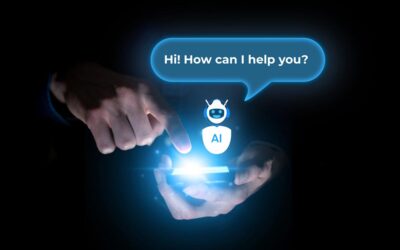Why an Integrated Library System (ILS) is Key to Your Independence
Lucidea
People who need people may indeed be the luckiest people in the world, but if you depend on others in order to do your job successfully, you’re going to need a strategy that embraces both daily partnership and situational independence.
Very few people do their work entirely alone. We all depend on other individuals or even departments to team up with us and/or support us in our efforts, and we reciprocate. That’s how organizations achieve their goals over time. However, being dependent on others can easily slow projects down when there are limited resources and competing priorities. Information professionals need to cultivate great situational awareness so that they can recognize interdependencies or scenarios that will lead to failure—and develop strategies for avoiding them.
Establish credibility
For knowledge managers and special librarians, situational independence is earned, and is often an outcome of daily partnership. The IT department and the Executive Team are very important to a successful library or knowledge center, and establishing credibility with them is critical to independence.
There are several factors that are important to controlling departmental progress and reputation through independence, such as the ability to:
- Configure and customize knowledge management software or an ILS without relying on IT
- Provide superior levels of accessibility and reliability
- Offer tools with minimal training required
- Demonstrate a strong ROI (increased usage, cost reduction, etc.)
Use cases, business cases, introductions, oh my!
In order for the IT Manager to feel comfortable with your approach to library and KM software, you’ll need to establish your credibility. This probably includes presenting use cases and/or business cases – tools that the IT department relies on in their own work. You’ll need to establish the credibility of your library software vendor with them as well; introducing them to your sales executive and even to your technical support contact is important. If you trust your vendor and have a great partnership with them, make sure your IT Manager feels the same way.
With regard to the Executive Team, one way to earn departmental independence is by demonstrating a great ROI (return on investment) through regular analytics and reporting. When you’ve established your operational prowess, leadership will feel comfortable advocating for you internally and will trust you to make the right choices, implement the right tools and lead the right initiatives.
Partnership and situational independence are once again in concert with regard to your end users. Facilitating independence for “information consumers” is extremely important and valuable. Providing end users with desktop (or tablet top!) tools that are intuitive and easy to use is priceless.
Similar Posts
The Importance of Professional Networking: Tips for Special Librarians
For many special librarians, the idea of professional networking can feel daunting, especially for those who thrive in quiet, research-driven environments. Lauren Hays shares her journey from reluctant networker to engaged community member, offering practical tips to help you build authentic professional relationships that benefit both you and your field.
Interview with the Author: Jim Cortada on Today’s Facts and the Evolution of Information
Dr. James Cortada, historian and senior research fellow at the Charles Babbage Institute, explores the history of information in his forthcoming book. By examining how information has been created, organized, and used over time, Cortada reveals patterns that continue to shape modern librarianship and knowledge management.
The Complicated Feelings Librarians May Have About AI
GenAI will affect how we do our work and the type(s) of work we engage in. In navigating the transformative potential of GenAI, we should engage in reflective practice that centers on our core professional values.
Recommended AI Literacy Frameworks for Special Librarians
These frameworks provide insights and approaches to help you determine the best ways to address build and promote AI literacy in your specific context.



